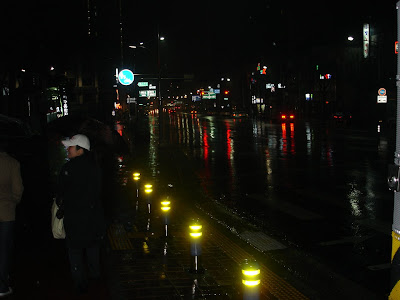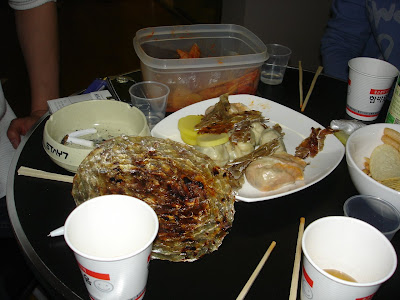Brook Benton - A Rainy Night in Georgia
Sunday, March 23, 2008
Saturday, March 22, 2008
Wednesday, March 19, 2008
First a stomach virus, and now a cold is killing me!
Monday, March 17, 2008
Sunday, March 16, 2008
Friday, March 14, 2008
JUMP
With the preparatory period of 3 years and 7 months, the musical JUMP is a non –verbal performance based on Taekwondo, a traditional Korean martial art, JUMP that will make the audience laugh and applaud throughout the show. This performance was given a favorable reception as it earned the top box office award at the Edinburgh Fringe Festival in 2005.
Its popularity was also reflected in its tickets sales: In February, tickets for JUMP were sold out almost everyday at the Peacock Theater (1,000 seats). The musical will show advance martial art movements from Taekwondo, acrobatic movements, and Taekkyeon (Korean traditional martial art) along with non-verbal music in a harmonious way.
JUMP
White Day
White Day
From Wikipedia, the free encyclopedia
White Day (ホワイトデー, howaito dē?, a Japanese pseudo-anglicism[1]; Korean: 화이트데이 Hwaiteudei; Chinese: 白色情人節) is a holiday celebrated on March 14, one month after Valentine's Day. Japan, South Korea and Taiwan celebrate this day.
White Day in Japan
In Japan, Valentine's Day is observed by members of the female gender who present chocolate gifts (either store-bought or handmade), usually to a member of the male gender, as an expression of love. The handmade chocolate is usually preferred by the receiver, because it is a sign that the receiving male is the girl's "only one". On White Day, the converse happens: males who received a "honmei-choco" [chocolate of love] or "Giri-choco" [chocolate of courtesy] on Valentine's Day are expected to return the favor by giving gifts, usually more expensive. Sometimes the term sanbai gaeshi (literally, "thrice the return") is used to describe the generally recited rule that the return gift should be two to three times the cost of the Valentine's gift.[2]
Wikipedia




Subscribe to:
Comments (Atom)




















































